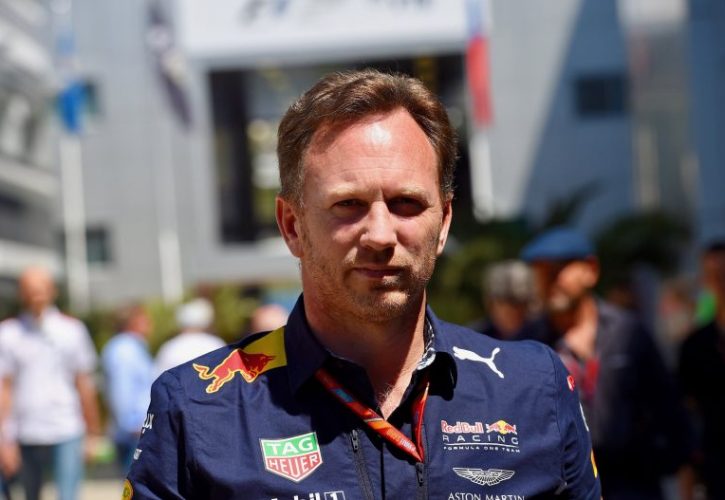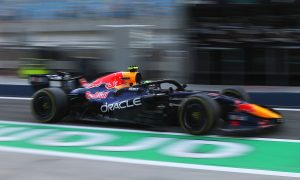
Red Bull Racing boss Christian Horner has insisted that his team will have options when it comes to deciding which engine manufacturer it will partner with in 2019.
Renault currently provides power units to Red Bull. However, the manufacturer has told Horner that it doesn't intend to extend that deal beyond the end of 2018.
That leaves Red Bull in need of a new supplier next season. As part of that process, sister team Toro Rosso has signed a deal with Honda this season - and if it's a success, the senior team might follow suit.
But Horner insisted that other possibilities were also open to them.
"The great thing for us is that we have options, which is a situation we haven't been in previously," Horner told RACER magazine this week.
"We'll take our time to evaluate those options," he continued. "And then try and make the best informed decision we can during the course of the coming year."
Horner said that they would be watching Toro Rosso's progress with Honda closely in the coming months.
"It's a great deal for Toro Rosso," he said. "Honda have a great legacy in Formula 1. They have desire and ambition.
"As a sister team we'll be keeping an interested eye on their progress during the first half of the year."
After their disastrous three-year liaison with McLaren, Honda will have much to prove and will need to do it quickly if they're to win Red Bull's hand in 2019.
Horner reiterated his concern that new engine rules limiting teams to just three units for the entire season was a big mistake.
"There will be plenty of grid penalties in 2018," Horner told ESPN. "What you'd hate to see is a championship decided on grid penalties.
"Getting to the point, with three engines in 21 races, it is nuts really," he said. "I don't think anybody particularly likes seeing [grid penalties] to the extent that they're happening at the moment.
"It would be horrible to see a championship decided on engine penalties."
Horner was sceptical that the rule would even achieve its primary objective of controlling spiralling costs.
"It is a false economy. Those engines go on a world tour, they are here anyway, and for more races, less engines."
"You're still burning these engines up on the dyno, but the reality is it doesn't save any money," Horner told Channel 4.
"We want to see the guys out on the track. Obviously don't throw caution to the wind with costs, but for me five engines for a 21-race championship would be a more sensible and logical number."
Gallery: The beautiful wives and girlfriends of F1 drivers
Keep up to date with all the F1 news via Facebook and Twitter






